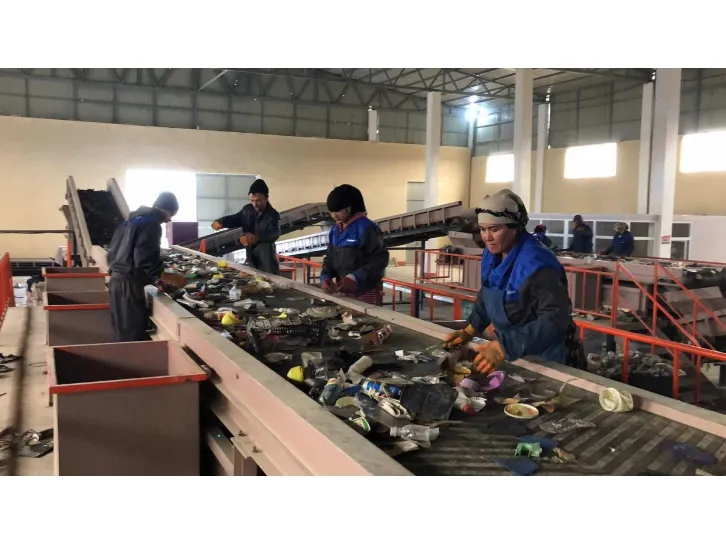

Dec . 03, 2024 18:42 Back to list
The Importance of Construction Debris Shredders in Sustainable Building Practices
In today’s world, the construction industry plays a pivotal role in economic development, but it also generates vast amounts of waste. Demolition sites, renovation projects, and new constructions contribute significantly to landfills, often with materials that could be recycled or repurposed. One effective solution to this growing problem is the implementation of construction debris shredders. These powerful machines not only help in reducing landfill waste but also contribute to sustainable building practices.
Understanding Construction Debris
Construction debris includes a wide range of materials such as concrete, wood, metal, plastics, and drywall. Traditionally, much of this waste has been sent to landfills. However, with increasing environmental awareness and regulatory pressures, the industry is shifting toward recycling and reusing materials wherever possible. Construction debris shredders play an essential role in this transition.
What are Construction Debris Shredders?
Construction debris shredders are heavy-duty machines designed to process various kinds of construction waste. They break down large materials into smaller, manageable pieces, making it easier to sort and recycle. These machines can handle an array of materials from wood beams and pallets to concrete and asphalt. With different types of shredders available, businesses can choose the one that best fits their needs based on the type of debris they typically encounter.
Benefits of Using Shredders
1. Waste Reduction The primary advantage of shredding construction debris is the significant reduction in overall waste volume. By breaking down large materials, shredders allow for easier transportation and less space required for storage or landfill.
2. Recyclability Many materials that go to waste can actually be recycled. By utilizing a shredder, construction companies can separate recyclable materials like metals, wood, and concrete from non-recyclables. For instance, shredded concrete can be reused as aggregates for new construction, helping to close the recycling loop.

3. Cost Efficiency Although there is an initial investment in purchasing or renting a shredder, the long-term savings are undeniable. Companies can save money on landfill disposal fees and even profit from selling recycled materials. Many municipalities also offer incentives for recycling, which can further offset costs.
4. Environmental Impact Shredding construction debris promotes sustainable building practices. By recycling materials, companies can significantly reduce their carbon footprint and contribute to a circular economy. This practice is not only beneficial for the environment but also enhances the company’s reputation as an eco-friendly operation.
5. Safety and Compliance The construction industry is heavily regulated, and companies must comply with waste disposal laws. Shredders help ensure that waste is appropriately managed and disposed of, minimizing legal liabilities and promoting a safe work environment.
Implementing Construction Debris Shredders
To effectively implement shredders into a construction project, companies need to consider several factors. First, it’s essential to evaluate the types and volumes of waste typically generated. This assessment will help in selecting the appropriate shredder model. Secondly, staff training is crucial. Workers should be knowledgeable about how to operate the shredder safely and efficiently, ensuring a smooth integration into existing workflows.
It is also vital to establish a system for sorting materials pre- and post-shredding. This system should identify which materials can be recycled, reused, or disposed of. Partnering with local recycling facilities can be beneficial, as they can often assist in managing shredded materials.
Conclusion
As the construction industry continues to evolve towards greater sustainability, construction debris shredders will play an increasingly crucial role. They not only help in reducing waste and promoting recycling but also contribute to cost savings and compliance with environmental regulations. By incorporating shredders into their waste management practices, construction companies can lead the way in creating a cleaner, more sustainable future. Investing in technology that turns waste into a resource is not just an option; it's a responsibility that the industry must embrace for the sake of our planet and future generations.
Latest news
Troubleshooting Common Eddy Separator Problems
NewsJul.04,2025
The Role of Metal Recycling Plants in Circular Economy
NewsJul.04,2025
The Impact of Recycling Line Pickers on Waste Management Costs
NewsJul.04,2025
Safety Features Every Metal Shredder Should Have
NewsJul.04,2025
How Industrial Shredders Improve Waste Management Systems
NewsJul.04,2025
How Cable Granulators Contribute to Sustainable Recycling
NewsJul.04,2025